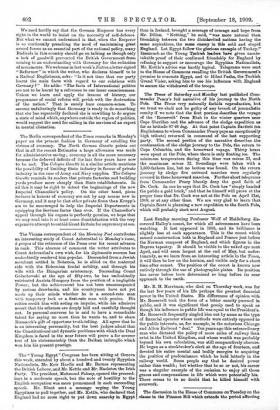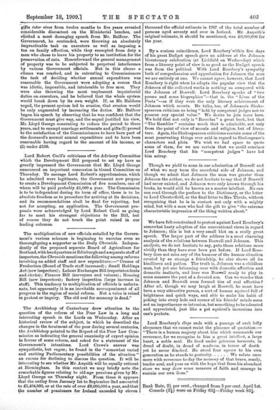gifts inter vivo* from twelve months to five years revealed
considerable discontent on the Ministerial benches, and elicited a most damaging speech from Mr. Balfour. The Government, he contended, were throwing an absolutely impracticable task on executors as well as imposing a tax on family affection, while they exempted from duty a man who chose to leave his property to an institution for the preservation of cats. Henceforward the general management of property was to be subjected to perpetual interference by various Government officials. But in this clause a climax was reached, and in entrusting to Commissioners the task of deciding whether annual expenditure was reasonable the Government were adopting a course that was idiotic, impossible, and intolerable to free men. They were also throwing the most unpleasant inquisitorial duties on executors, and he believed that the whole system would break down by its own weight. If, as Mr. Haldane urged, the present system led to evasion, that evasion would be only augmented by increasing the duties. Mr. Balfour began his speech by observing that he was confident that the Government must give way, and the sequel justified his view, Mr. Lloyd George consenting to reduce the period to three years, and to exempt marriage settlements and gifts (1) proved to the satisfaction of the Commissioners to have been part of the deceased's normal annual expenditure and to have been reasonable having regard to the amount of his income, or (2) under £100.











































 Previous page
Previous page